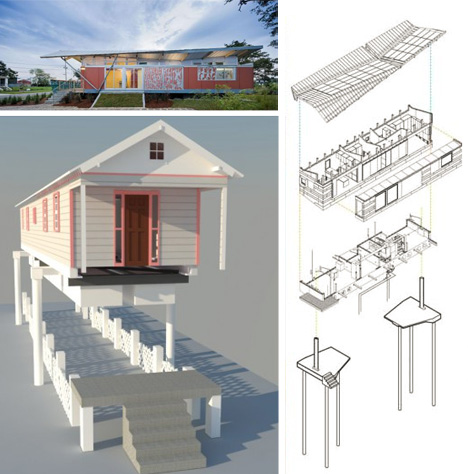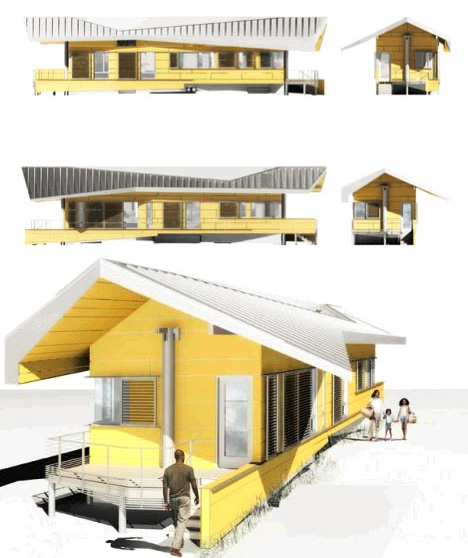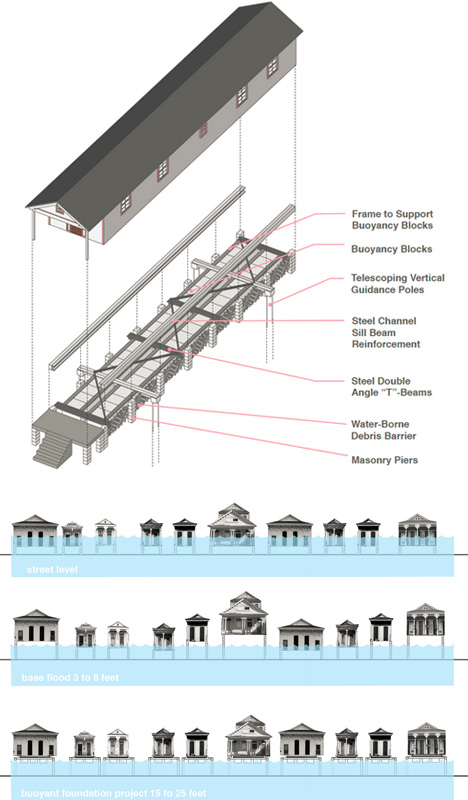Floodwaters rise, drench homes, then recede, leaving disaster in their wake – a temporary change renders many structures permanently uninhabitable. But what if houses could ride out the storms, rising with the tides, then settling back down to the ground when the water is gone?
Based on the tragedy of Hurricane Katrina in New Orleans, Morphosis (along with Brad Pitt’s Make it Right Foundation) has designs for new adaptive architecture, while the Buoyant Foundation Project proposes a system for retrofitting existing homes. The latter organization, founded by Elizabeth Fenuta (Alumni of University of Waterloo, School of Architecture) grew out of its creator’s Master of Architecture thesis project. Each approach would allow structures to do lift off the ground in an emergency and uses regional shotgun-style dwellings as their baseline typology.
BFP outlines a process that involves attaching buoyancy blocks below the home, connecting them to the sub-frame, and installing four corner guideposts to keep the building in place along horizontal axes while allowing it to lift (and settle) vertically on demand.
Connections to utilities (gas, water, power and so forth) would be either severable or extendable, so they could detach and reattach or simply expand and contract as needed. In plan, nothing changes – in elevation, predictable but periodic disasters are accommodated.


